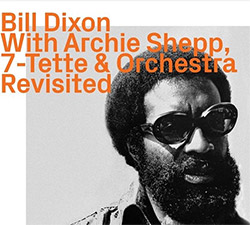
Reissuing three essential album from trumpeter Bill Dixon's work in the 60's, first his 1962 album with saxophonist Archie Shepp in configurations of trio & quartet; then Dixon's septet album from 1964 in two compositions; and his orchestra album from 1967, showing the evolution of the trumpeter's work, approach to soloing, and his unique sense of orchestration.
In Stock
Quantity in Basket: None
Log In to use our Wish List
Shipping Weight: 3.00 units
EU & UK Customers:
Discogs.com can handle your VAT payments
So please order through Discogs
Sample The Album:
Archie Shepp-tenor saxophone
Bill Dixon-trumpet, flugelhorn
Don Moore-double bass
Paul Cohen-drums
Ken McIntyre-alto saxophone, oboe
George Barrow-tenor saxophone
Howard Johnson-tuba, baritone saxophone
Hal Dodson-double bass
David Izenzon-double bass
Howard McRea-drums
Byard Lancaster-alto saxophone, bass clarinet
Robin Kenyatta-alto saxophone
Jimmy Cheatham-bass trombone
George Marge-english horn, flute
Catherine Norris-cello
Jimmy Garrison-double bass
Reggie Workman-double bass
Robert Frank Pozar-drums
Marc Levin-percussion
Click an artist name above to see in-stock items for that artist.
UPC: 752156115724
Label: ezz-thetics by Hat Hut Records Ltd
Catalog ID: ezz-thetics 1157
Squidco Product Code: 33574
Format: CD
Condition: New
Released: 2023
Country: Switzerland
Packaging: Cardboard Gatefold
Tracks 1 and 2 recorded at Savor Studios, in Newark, New Jersey, in October, 1962.
Tracks 3 and 4 recorded at Savor Studios, in Newark, New Jersey, on March 4th, 1964.
Tracks 5, 6, 7 and 8 at RCA's Victor's Studio B, in NYC, on October 19th, 1966, and January 17th and 21st, 1967.
The Archie Shepp-Bill Dixon Quartet originally released in 1962 as a vinyl LP on the Savoy Records label with catalog code MG-12178.
Bill Dixon 7-Tette / Archie Shepp And The New York Contemporary 5 originally released in 1964 as a vinyl LP on the Savoy Records label with catalog code MG-12184.
The Bill Dixon Orchestra - Intents And Purposes originally released in 1967 as a vinyl LP on the RCA Victor label with catalog code LSP-3844.
"Already in his late 30s, Bill Dixon seems to have suddenly appeared in 1962, stretching jazz modernism in distinctively new ways with Archie Shepp - Bill Dixon Quartet for Savoy. However, the trumpeter had been on the margins of the New York jazz scene for over a decade, encountering the likes of Cecil Taylor, Tina Brooks, and Earl Griffiths, often in informal settings. There were dead ends and diversions - he spent much of 1954 in a band that played clubs and a US Air Force base in Alaska. Like many jazz musicians, Dixon's activities were hampered by day jobs, though working at the UN from 1956 to 1962 allowed him to form the United Nations Jazz Society, and afforded him his first interdisciplinary performance opportunity in 1959, playing his notated music - and improvising - with a guitarist for a production of "No Exit" in a small theater in the Secretariat library.
Foreshadowing his history-shaping organizing of 1964, Dixon began a two-year campaign to bring contemporary music to Greenwich Village coffeehouses like The Rose in 1959, taking part in sessions with Don Cherry, Wilbur Ware, and others. In the winter of 1960-1, Dixon met Archie Shepp, arguably his most consequential collaborator, on his way to a Miles Davis gig (Shepp memorably wore a WWI aviator's cap and goggles). Throughout 1961, Dixon and Shepp's groups gigged at various venues in New York and the Catskills and performed with choreographer/dancer Elaine Shipman. At some point in the second half of '61, Ornette Coleman was sufficiently impressed to take a few initial trumpet lessons from Dixon, who also helped Coleman buy a mouthpiece.
1962 was the pivotal year for Dixon and Shepp's collaboration. In addition to performing regularly in New York clubs, as well as a LeRoi Jones-programmed series at The Maidman Theater, and The Living Theater with Shipman and dancers, they championed political causes, sharing the bill at Rockland Palace with the Max Roach-Abbey Lincoln group at an early-year benefit for Robert Williams. Williams had led an armed group dedicated to the protection of black citizens in a North Carolina town, and who fled with his family in 1961 after repeated violent confrontations with local authorities, first to New York, then to Canada, and finally to Cuba in 1962.
This performance gained the notice of the Communist Party USA, who invited the Dixon-Shepp quartet with Don Moore and Howard McRae to play at the World Festival of Youth and Students for Peace and Friendship in Helsinki in late July, their travel funded by performances organized by the On Guard for Freedom Committee, of which Shepp was a member. (Shepp and Dixon shared Marxist views about art's revolutionary function.) With Perry Robinson sitting in, the quartet's set at Helsinki included original compositions, straight-up bebop and "In A Mellotone." However, the most far-reaching impact of the trip was their meeting John Tchicai and convincing him to come to New York.
Soon after the quartet reconvened in New York, they recorded Archie Shepp - Bill Dixon Quartet. Dixon's compositions on the A side aligned with emergent jazz sensibilities. Later recorded by New York Contemporary Five, "Trio" uses a propulsive ostinato to underpin extended improvisation, an approach that triangulates those of Davis and John Coltrane, while "Quartet" has an Ornettish tinge. Dixon's solos are carefully constructed, with few hints of his mature style. On "Trio," he takes a page from Davis' playbook, using sinewy lyrical phrases to set up declarative long notes and robustly rhythmic phrases, while his knottier phrasing on "Quartet" has a slight Cherry flavor.
Even though the quartet disbanded in the summer of 1963, Dixon and Shepp were still obligated to record a second album for Savoy, prompting them to present respective sides for Bill Dixon 7-Tette/Archie Shepp and the New York Contemporary Five. Recorded in February 1964, Dixon's two compositions still employed steady swinging rhythms, tonal centers, and sundry modern jazz accruements. However, the use of tuba, oboe, and twin basses supply the first glimpses of the distinctive color palettes Dixon used going forward, while his solos introduced the smears and spurts that became central to his improvising.
Dixon was always adamant about controlling the presentation of his music; he even pushed for the front cover of the quartet album to be textless. The three years after the 7-Tette date - which encompasses the formation and the demise of the Jazz Composers Guild, and the inception of the Judith Dunn/Bill Dixon Company with the choreographer/dancer - intensified his resolve. The news in 1966 that RCA agreed to Dixon's conditions was met with astonishment in the avant-garde jazz community, given the power of the major record labels. For the most part, RCA went to remarkable lengths to accommodate Dixon in how the music was recorded, even letting him set levels for various parts of the 10-piece ensemble assembled for "Metamorphosis 1962-1966" to achieve, as he described it to Dixonia author Ben Young, "a wispy quality." However, RCA's efforts were nullified when they drew back from issuing the album on their Red Seal line of classical music, and headlined Dunn's liner notes with "The Jazz Artistry of Bill Dixon."
Whenever Dixon and Dunn gave workshops, they emphasized the need for artists to be self-critical. Intents and Purposes is compelling evidence that Dixon practiced what he preached. Stripping away the vestments of modern jazz, Dixon created music that was then beyond category. Unlike Coltrane's "Ascension" or Alexander von Schlippenbach's "Globe Unity," Dixon did not launch a withering assault to herald the new with "Metamorphosis 1962-1966;" rather, he let his materials bloom from a sepia-toned chiaroscuro, allowing improvised elements to peak with fierce colors. Decades later, Taylor Ho Bynum wrote that Dixon deemphasized forward momentum, concentrating instead on "the infinite potential of the existing moment rather than the moment to come," an observation applicable to his orchestra piece, and to "Voices" for quintet and the two "Nightfall Pieces" duets, as well.
While his recordings with Archie Shepp and the 7-Tette established Bill Dixon as a distinctive jazz modernist, ahead of the curve, creating a niche within a crowded field of emerging artists, it is Intents and Purposes that established his singularity. Together, they constitute the first chapter of a recorded legacy that continues to grow in stature and influence."-Bill Shoemaker, May 2023

The Squid's Ear!
Artist Biographies
• Show Bio for Archie Shepp "Archie Shepp (born May 24, 1937) is an American jazz saxophonist. Shepp was born in Fort Lauderdale, Florida, but raised in Philadelphia, Pennsylvania. He studied piano, clarinet, and alto saxophone before focusing on tenor saxophone. He occasionally plays soprano saxophone and piano. He studied drama at Goddard College from 1955 to 1959. He played in a Latin jazz band for a short time before joining the band of avant-garde pianist Cecil Taylor. Shepp's first recording under his own name, Archie Shepp - Bill Dixon Quartet, was released on Savoy Records in 1962 and featured a composition by Ornette Coleman. Along with John Tchicai and Don Cherry, he was a member of the New York Contemporary Five. John Coltrane's admiration led to recordings for Impulse! Records, the first of which was Four for Trane in 1964, an album of mainly Coltrane compositions on which he was joined by trombonist Roswell Rudd, bassist Reggie Workman and alto player John Tchicai. Shepp participated in the sessions for Coltrane's A Love Supreme in late 1964, but none of the takes he participated in was included on the final LP release (they were made available for the first time on a 2002 reissue). However, Shepp, along with Tchicai and others from the Four for Trane sessions, then recorded Ascension with Coltrane in 1965, and his place alongside Coltrane at the forefront of the avant-garde jazz scene was epitomized when the pair split a record (the first side a Coltrane set, the second a Shepp set) entitled New Thing at Newport released in late 1965.File:Archie Shepp interview 1978.webmPlay media(video) Interview from 1978, Archie Shepp discusses jazz trends, poverty, politics, civil rights, culture and society. In 1965, Shepp released Fire Music, which included the first signs of his developing political consciousness and his increasingly Afrocentric orientation. The album took its title from a ceremonial African music tradition and included a reading of an elegy for Malcolm X. Shepp's 1967 The Magic of Ju-Ju also took its name from African musical traditions, and the music was strongly rooted in African music, featuring an African percussion ensemble. At this time, many African-American jazzmen were increasingly influenced by various continental African cultural and musical traditions; along with Pharoah Sanders, Shepp was at the forefront of this movement. The Magic of Ju-Ju defined Shepp's sound for the next few years: freeform avant-garde saxophone lines coupled with rhythms and cultural concepts from Africa. Shepp was invited to perform in Algiers for the 1969 Pan-African Cultural Festival of the Organization for African Unity, along with Dave Burrell, Sunny Murray, and Clifford Thornton. This ensemble then recorded several sessions in Paris at the BYG Actuel studios. Shepp continued to experiment into the new decade, at various times including harmonica players and spoken word poets in his ensembles. With 1972's Attica Blues and The Cry of My People, he spoke out for civil rights; the former album was a response to the Attica Prison riots. Shepp also writes for theater; his works include The Communist (1965) and Lady Day: A Musical Tragedy (1972). Both were produced by Robert Kalfin at the Chelsea Theater Center. In 1971, Shepp was recruited to the University of Massachusetts Amherst by Randolph Bromery, beginning a 30-year career as a professor of music. Shepp's first two courses were entitled "Revolutionary Concepts in African-American Music" and "Black Musician in the Theater". Shepp was also a professor of African-American Studies at SUNY in Buffalo, New York. In the late 1970s and beyond, Shepp's career went between various old territories and various new ones. He continued to explore African music, while also recording blues, ballads, spirituals (on the 1977 album Goin' Home with Horace Parlan) and tributes to more traditional jazz figures such as Charlie Parker and Sidney Bechet, while at other times dabbling in R&B, and recording with various European artists including Jasper van't Hof, Tchangodei and Dresch Mihály. Shepp is featured in the 1981 documentary film Imagine the Sound, in which he discusses and performs his music and poetry. Shepp also appears in Mystery, Mr. Ra, a 1984 French documentary about Sun Ra. The film also includes footage of Shepp playing with Sun Ra's Arkestra. Since the early 1990s, he has often played with the French trumpeter Eric Le Lann. In 1993, he worked with Michel Herr to create the original score for the film Just Friends. In 2002, Shepp appeared on the Red Hot Organization's tribute album to Fela Kuti, Red Hot and Riot. Shepp appeared on a track entitled "No Agreement" alongside Res, Tony Allen, Ray Lema, Baaba Maal, and Positive Black Soul. In 2004 Archie Shepp founded his own record label, Archieball, together with Monette Berthomier. The label is located in Paris, France, and includes collaborations with Jacques Coursil, Monica Passos, Bernard Lubat, and Frank Cassenti." ^ Hide Bio for Archie Shepp • Show Bio for Bill Dixon "Bill Dixon (October 5, 1925 – June 16, 2010) was an American musician, composer, visual artist, and educator. Dixon was one of the seminal figures in the free jazz movement. He played the trumpet, flugelhorn, and piano, often using electronic delay and reverberation. Dixon hailed from Nantucket, Massachusetts. His family later moved to Harlem, New York City when he was about 7. His studies in music came relatively late in life, at the Hartnette Conservatory of Music (1946–1951). He studied painting at Boston University and the WPA Arts School and the Art Students League. During the early 1950s he had a job at the United Nations, and founded the UN Jazz Society. In the 1960s Dixon established himself as a major force in the jazz avant-garde movement. In 1964, Dixon organized and produced the 'October Revolution in Jazz', four days of music and discussions at the Cellar Café in Manhattan. The participants included notable musicians Cecil Taylor and Sun Ra among others. It was the first free-jazz festival of its kind. Dixon later founded the Jazz Composers Guild, a cooperative organization that sought to create bargaining power with club owners and effect greater media visibility. He was relatively little recorded during this period, though he co-led some releases with Archie Shepp and appeared on Cecil Taylor's Blue Note record Conquistador! in 1966. In 1967, he composed and conducted a score for the United States Information Agency film The Wealth of a Nation, produced and directed by William Greaves. He was Professor of Music at Bennington College, Vermont, from 1968 to 1995, where he founded the college's Black Music Division. From 1970 to 1976 he played "in total isolation from the market places of this music", as he puts it. Solo trumpet recordings from this period were later released by Cadence Jazz Records, and later collected on the self-released multi-CD set Odyssey along with other material. He was one of four featured musicians in the Canadian documentary Imagine the Sound (along with Cecil Taylor, Archie Shepp, and Paul Bley), 1981. In recent years he recorded with Cecil Taylor, Tony Oxley, William Parker, Rob Mazurek, and many others. Dixon's playing was noted for his extensive use of the pedal register, playing below the trumpet's commonly ascribed range, and well into the trombone and tuba registers. He made extensive use of half-valve techniques and the use of breath with or without engaging the traditional trumpet embouchure. He largely eschewed the use of mutes, the exception being his use of the harmon mute, with or without stem. On June 16, 2010, Bill Dixon died in his sleep at his home after suffering from an undisclosed illness." ^ Hide Bio for Bill Dixon • Show Bio for Don Moore "Don Moore (born 1937, in Philadelphia, Pennsylvania) is an American jazz double-bassist. Moore initially played piano but switched to bass in 1959. He played and recorded with Archie Shepp and Bill Dixon in Europe in 1962. In 1963 he was a member of the New York Contemporary Five, and while the ensemble was in Copenhagen, Moore recorded with Roland Kirk. In the fall of that same year, he played briefly with Thelonious Monk. Later in the 1960s Moore worked with Sonny Rollins, Jackie McLean, Frank Foster, and Lee Morgan. He recorded with Elvin Jones in 1966 and Clifford Thornton in 1967, but receded from view toward the end of the 1960s. Don Moore is currently active in the New York area. He is father to singer, Indra Rios-Moore, and actor, Ryan Moore." ^ Hide Bio for Don Moore • Show Bio for Paul Cohen "Paul Cohen is a drummer and attorney, known for his work with Herb Pomery Large Ensemble, Paul Cohen & Friends, The Archie Shepp-Bill Dixon Quartet." ^ Hide Bio for Paul Cohen • Show Bio for Ken McIntyre "Makanda Ken McIntyre (born Kenneth Arthur McIntyre; also known as Ken McIntyre) (September 7, 1931 - June 13, 2001) was an American jazz musician, composer and educator. In addition to his primary instrument, the alto saxophone, he played flute, bass clarinet, oboe, bassoon, double bass, drums, and piano. McIntyre was born in Boston, Massachusetts, United States. His father played mandolin. McIntyre started his musical life on the bugle when he was eight years old, followed by piano. In his teens he discovered the music of Charlie Parker and began playing saxophone at nineteen, then clarinet and flute two years later. In 1953 he served in the Army and played saxophone and piano in Japan. After serving two years in the U.S. Army, he attended the Boston Conservatory where he studied with Gigi Gryce, Charlie Mariano, and Andy McGhee. In 1958 he received a degree in flute and composition with a master's degree the next year in composition. He also received a doctorate (Ed.D.) in curriculum design from the University of Massachusetts Amherst in 1975. In 1960 he recorded as a leader with Eric Dolphy. Beginning the next year, and for the next six years, he taught music in public schools. He took oboe lessons in New York before playing with Bill Dixon, Jaki Byard, and the Jazz Composer's Orchestra. Then he spent three years with pianist Cecil Taylor. During the 1970s he recorded with Nat Adderley and Beaver Harris and in the 1980s with Craig Harris and Charlie Haden. In 1971, he founded the first African American Music program in America at the State University of New York College at Old Westbury, teaching for 24 years. He also taught at Wesleyan University, Smith College, Central State University, Fordham University, and The New School for Jazz and Contemporary Music. In the early 1990s, he changed his name to Makanda Ken McIntyre. While performing in Zimbabwe, a stranger handed him a piece of paper with the word "Makanda" written on it; the word means "many skins" in the Ndebele language and "many heads" in Shona. McIntyre died of a heart attack in New York City, at the age of 69 on June 13, 2001." ^ Hide Bio for Ken McIntyre • Show Bio for George Barrow "George Barrow, a lifetime New Yorker, a jazz musician who played with Charles Mingus, and father of Daily News Sunday Sports Editor Eric Barrow, died Wednesday in his West Village apartment. He was 91. Barrow was born on Sept. 25, 1921 and raised on Staten Island and East Harlem. In his early years he worked various jobs, including driving a city bus and working in the city's shipyards and the U.S. Postal Service. For a short time, he took up boxing under the tutelage of the legendary trainer Cus D'Amato. At 23, he decided to devote himself to music, teaching himself the saxophone, the clarinet and flute. Within 11 years, Barrow was recording at the Cafe Bohemia with jazz greats Charles Mingus and Max Roach as part of the Charles Mingus Quintet in the mid-50s, then later joined musical heavyweights Oliver Nelson, Eric Dolphy, Roy Haynes, Freddie Hubbard, Bill Evans and Paul Chambers on one of the landmark jazz albums, "The Blues and the Abstract Truth," released in 1961. "His baritone parts were executed with such precision and devotion that I find it necessary to make special mention of his fine work," Nelson said. Barrow also recorded an album under his own name with French horn player David Amram, entitled the Amram-Barrow Quartet, and recorded the score of the Natalie Wood, Warren Beatty film, "Splendor in the Grass." He was also an orchestra regular at Harlem's Apollo Theater and the Americana Hotel. In the second half of his career, Barrow moved to Broadway, playing in such acclaimed shows as "Buck White," starring Muhammad Ali, "42nd Street," "Ain't Misbehavin'" with Nell Carter and "Jelly's Last Jam," starring Gregory Hines and Savion Glover." ^ Hide Bio for George Barrow • Show Bio for Howard Johnson "Howard Johnson is universally known as the finest proponent of the jazz tuba in the world, as well as being quite proficient on the baritone saxophone. He also plays flugelhorn, bass clarinet, cornet, and penny whistle among other instruments. Howard was born in Montgomery, Alabama on August 7, 1941. He taught himself the baritone sax in 1954 and the tuba a year later. He moved to New York in 1963-at a time when the tuba was not a fashionable jazz instrument (outside of the New Orleans-style bass-line chores, the only visible player was Ray Draper) but Charles Mingus welcomed Howard into his workshop in 1964. In 1965 he toured with soul jazz alto saxophonist Hank Crawford, playing baritone sax, but returned to the Mingus' workshop for a year beginning in July, 1965. In 1966, he played with the Archie Shepp band for some months and appeared with him at the Newport Jazz Festival in 1966 and 1968. Gil Evans used his multi-instrumental capacity at various points between 1966 and 1988. Active on the West Coast in the mid-60's, Johnson played with Buddy Rich, Gerald Wilson and Oliver Nelson. In 1968 he played in the Jazz Composers Orchestra, an epic combination of scores and extreme performances from Carla Bley, Cecil Taylor, Pharoah Sanders and Larry Coryell. 1968 also saw him forming a tuba ensemble named Substructure. He supplied the tuba solo on Jimi Hendrix's Voodoo Child in 1974 with the Gil Evans Orchestra. An in-depth list of associations and recordings includes John Scofield, Hank Crawford, Archie Shepp, Buddy Rich, Freddie Hubbard, McCoy Tyner, Marvin Gaye, Miles Davis, Quincy Jones, Abdullah Ibrahim, and John Lennon and a four year association with the NDR Big Band in Hamburg, Germany. In movies he can be heard on the soundtracks of Spike Lee's School Daze, Mo' Better Blues, Malcolm X and Clockers. Johnson's career makes nonsense of the so-called division between commercial and avant-garde, and he even performed a stint as conductor of the Saturday Night Live Band in the late 70's. He also arranged for Taj Mahal, B.B. King, and Paul Butterfield and played on The Band's Rock of Ages and The Last Waltz. In 1972, Johnson changed the name of Substructure to GRAVITY, which has released two acclaimed late-90s sessions for Verve Records." ^ Hide Bio for Howard Johnson • Show Bio for Hal Dodson Hal Dodson is an American double bass player, know for his work with Archie Shepp, Bill Dixon, Hugh Masekela, Miriam Makeba and Cootie Williams. ^ Hide Bio for Hal Dodson • Show Bio for David Izenzon "David Izenzon (May 17, 1932 – October 8, 1979) was an American jazz double bassist. Izenzon was born in Pittsburgh, Pennsylvania, United States. He graduated from the Carnegie Institute of Technology, now Carnegie Mellon University, and later received a master's degree from the Manhattan School of Music. Izenzon began playing double bass at the age of twenty-four. He played in his hometown before moving to New York City in 1961 where he played with Paul Bley, Archie Shepp, Sonny Rollins, and Bill Dixon. He is best known for his association with Ornette Coleman, which began in October 1961. He played in Coleman's Town Hall, 1962 concert and played with him frequently from 1965 to 1968, often in a trio format with drummer Charles Moffett. During this time, Izenzon also recorded with Harold McNair and Yoko Ono. From 1968 to 1971, he taught music history at Bronx Community College and played with Perry Robinson and Paul Motian, but reduced his time in music in 1972 when his son became ill. In 1973 Izenzon received a Ph.D. in psychotherapy from Northwestern University. The following year, he co-founded Potsmokers Anonymous with his wife, Pearl. In 1975 he composed a jazz opera entitled How Music Can Save the World, dedicated to those who helped his son recover. From 1977, Izenzon worked again with Coleman and Motian, up until his death in 1979. Izenzon had a heart attack and was dead on arrival at Bellevue Hospital in New York City. He was survived by his wife and two sons. " ^ Hide Bio for David Izenzon • Show Bio for Byard Lancaster "Byard Lancaster (August 6, 1942 – August 23, 2012) was an avant-garde jazz saxophonist and flutist. He attended two colleges, one for music, before attending the Berklee College of Music. He moved to New York City and participated in jam sessions which included saxophonist Archie Shepp and drummer Elvin Jones. In 1965, he recorded Sunny Murray Quintet with the album's eponymous musician in New York, performed in the Parisian Actuel festival with him in 1969, and continued to work in the drummer's groups throughout his career. By the 1970s, Lancaster had played with musicians such as McCoy Tyner, Khan Jamal, and Sun Ra, as well as some outside of jazz, such as blues pianist Memphis Slim and blues guitarist Johnny Copeland. Near the end of his life he performed regularly with cellist David Eyges and recorded as a leader and sideman for the record label Creative Improvised Music Projects. He died of pancreatic cancer on August 23, 2012." ^ Hide Bio for Byard Lancaster • Show Bio for Robin Kenyatta "Robin Kenyatta (March 6, 1942 – October 26, 2004) was an American jazz alto saxophonist. Born Robert Prince Haynes in Moncks Corner, South Carolina, Kenyatta grew up in New York City and began playing the saxophone at the age of 14. He was mostly self-taught, learning alto, tenor, and soprano saxophones and flute, but received encouragement and help from professional musicians such as John Handy. Kenyatta joined the United States Army in 1962 and played in a military band for two years. Upon being discharged, he returned to New York and adopted the name Kenyatta as a tribute to Jomo Kenyatta, the Kenyan anti-colonial activist, and began pursuing a career as a professional musician. In 1964, Bill Dixon heard Kenyatta and invited him to participate in the October Revolution in Jazz. On December 28 of that year, Kenyatta played as a member of the Bill Dixon Quintet as part of the "Four Days in December" concert series at Judson Hall, substituting for Giuseppi Logan, who was injured. According to Dixon biographer Benjamin Young, "Kenyatta became such an effective part of the group as Logan was recovering that the latter never rejoined Dixon's outfit." During this time, he met John Coltrane, who praised his playing. Kenyatta performed with Dixon's group again at the Contemporary Center from March 19 to March 20, 1965, and with the Jazz Composer's Orchestra at the same location from April 9 to April 11 of that year. He also appeared on the Jazz Composer's Orchestra album Communication, recorded on April 10. Later that year, Kenyatta made his first recorded appearance on the album Portrait In Soul by pianist and composer Valerie Capers. In 1966, he appeared on Sonny Stitt's album Deuces Wild, as well as Roswell Rudd's Everywhere and Dixon's Intents and Purposes. Kenyatta released Until, his first album as a leader, the following year. In 1969, Kenyatta moved to Paris, France, where he continued to perform and record, releasing Beggars & Stealers and Girl from Martinique under his own name. In 1972, he moved back to New York, and recorded three albums that were more mainstream than his previous releases – Gypsy Man, Terra Nova, and Stompin' at the Savoy, for Atlantic Records. He also released a version of the theme from the 1972 film Last Tango in Paris during this time. In the mid-1970s, he moved to Lausanne, Switzerland, where he taught music at the Ecole de Jazz Musique Actuelle and founded the Hello Jazz Music School and shop. Throughout the 1970s, he recorded as a sideman for Alan Silva, Andrew Hill, Oscar Brown, Ted Curson, Sam Rivers, and Archie Shepp. During the 1980s and 1990s, Kenyatta performed at major jazz festivals with Dizzy Gillespie, Paul Simon, George Benson, B.B. King, The Isley Brothers, and other major artists. Kenyatta also continued to record under his own name, trying "to find a comfortable middle ground between fusion, instrumental pop, and his hard bop and free music roots." In 2001, he moved back to New York and commuted to a teaching position at Bentley University in Waltham, Massachusetts. In 2003, he released a funk and blues-influenced album titled Cool Blue. In 2004, Kenyatta flew to Lausanne for a performance, but died in his sleep on October 26." ^ Hide Bio for Robin Kenyatta • Show Bio for Jimmy Cheatham "James Rudolph Cheatham (June 18, 1924 – January 12, 2007) was an American jazz trombonist and teacher, who played with Chico Hamilton, Ornette Coleman, Thad Jones, Mel Lewis, Lionel Hampton, Frank Foster, and Duke Ellington. In 1978, Cheatham was invited to lead the jazz program at University of California, San Diego. In 1979 he began to direct the school's African American and jazz performance programs. He retired in 2005. Cheatham was born in Birmingham, Alabama on June 18, 1924, the son of Isabelle (née Steen) and Andrew Cheatham, who was a conductor on the Louisville and Nashville Railroad. After his parents separated when he was a small child, he grew up with his mother and sister, Arlene, in Buffalo, New York. In February 1943, he enlisted in the United States Army, and was a member of the 173rd Army Ground Force Band from 1944 to 1946, when he was demobilized following the end of World War II. At various times, his colleagues in the band included Eddie Chamblee, Chico Hamilton, Jo Jones, Lester Young, and also Harry White, whom Cheatham said had been "like a mentor" to him. Taking advantage of the G.I. Bill, Cheatham was able to attend the New York Conservatory of Modern Music in Brooklyn from 1948 to 1950, then from 1950 to 1953 studied at the Westlake College of Music in Los Angeles,[a] where he developed a lifelong friendship with one of his instructors, Russell Garcia. While at Westlake, a piece he wrote for string quartet[b] was performed at a concert with Paul Robeson, and he also received a scholarship to the nearby American Operatic Laboratory. Amongst the visitors to the flat he shared with saxophonist Buddy Collette in Los Angeles were Charlie Parker, and the first Gerry Mulligan quartet (including Chico Hamilton) who went there to rehearse. Cheatham met his wife, Jean Evans, in 1956 in Buffalo, New York, when the local musicians' union chief called them separately to replace two musicians who could not make a job at the local Elks Ballroom. They married in 1959, and their son, Jonathan, was born the same year His wife also had a daughter from a previous relationship, Shirley, who was born in 1951. During the 1970s, Cheatham taught jazz at Bennington College in Vermont, and also at the University of Wisconsin in Madison, Wisconsin. In 1984, Cheatham and his wife won a bronze medal at the New York Festivals Film and TV Awards for the 1983 KPBS television special Three Generations of the Blues, which featured Sippie Wallace, Big Mama Thornton, and Jennie Cheatham. Also in 1984, the Cheathams formed the Sweet Baby Blues Band, reviving Kansas City-style blues. The first of the eight studio albums they released between 1985 and 1996, Sweet Baby Blues, was the sole recording to receive a Grand Prix du Disque de Jazz[c] from the Hot Club de France in 1985. Their fifth album, Luv in the Afternoon (1990), was also voted amongst the best blues albums of the year in Down Beat magazine's 39th annual poll of international music critics, as published in 1991. In 1998, the band was described as "an earthy jump blues combo that plays funky, hard-swinging, boogie-busting music". Cheatham's legacy is carried on by several students who went on to become, like him, prominent composer/performer/educators: flutist Nicole Mitchell, bassist Karl E. H. Seigfried, and drummer Vikas Srivastava. Cheatham died in San Diego, California on January 12, 2007, aged 82, having undergone heart surgery the previous month." ^ Hide Bio for Jimmy Cheatham • Show Bio for George Marge "George Marge - Woodwind player. Born: June 19th, 1933, Albany NY. Died, August 22nd, 1985(Age 52), in River Bend, NJ. George was recognized by the New York chapter of the National Academy of Recording Arts and Sciences as an MVP as follows: 1982, Flute and Oboe, 1981 Oboe; 1980 Flute and Oboe." ^ Hide Bio for George Marge • Show Bio for Catherine Norris Catherine Norris is an improviser performing on cello, known for her work with Noah Howard and with Bill Dixon. ^ Hide Bio for Catherine Norris • Show Bio for Jimmy Garrison "James Emory Garrison (March 3, 1934 – April 7, 1976) was an American jazz double bassist. He is best remembered for his association with John Coltrane from 1961 to 1967. Garrison was raised in both Miami, Florida and Philadelphia where he learned to play bass. Garrison came of age in the midst of a thriving Philadelphia jazz scene that included fellow bassists Reggie Workman and Henry Grimes, pianist McCoy Tyner and trumpeter Lee Morgan. Between 1957 and 1962, Garrison played and recorded with trumpeter Kenny Dorham; clarinetist Tony Scott; drummer Philly Joe Jones; and saxophonists Bill Barron, Lee Konitz, and Jackie McLean, as well as Curtis Fuller, Benny Golson, Lennie Tristano, and Pharoah Sanders, among others. In 1959 he first appeared on record with Ornette Coleman on "Art of the Improvisers" (Atlantic, 1959). He continued to work with many leaders, including Walter Bishop, Jr., Coleman, Dorham, and Cal Massey for the next two years. He formally joined Coltrane's quartet in 1962, replacing Workman. The long trio blues "Chasin' the Trane" is probably his first recorded performance with Coltrane and Elvin Jones. Garrison performed on many classic Coltrane recordings, including A Love Supreme. In concert with Coltrane, Garrison would often play unaccompanied improvised solos, sometimes as the prelude to a song before the other musicians joined in. After John Coltrane's death, Garrison worked and recorded with Alice Coltrane, Hampton Hawes, Archie Shepp, Clifford Thornton and groups led by Elvin Jones. Garrison also had a long association with Ornette Coleman, first recording with him on Ornette on Tenor and appeared on the outtake compilation Art of the Improvisers. He and drummer Elvin Jones have been credited with eliciting more forceful playing than usual from Coleman on the albums New York Is Now! and Love Call. In 1971 and 1972, Garrison taught as a Visiting Artist at Wesleyan University and Bennington College. Jimmy Garrison had four daughters and a son. Garrison and his first wife Robbie had daughters Lori, Joy and Robin. Then later with his second wife, Italy-based dancer and choreographer Roberta Escamilla Garrison, came Maia Claire and Matthew. Matthew, Joy and Maia Claire are accomplished artists in their own right. Matthew Garrison is a bass guitar player and the founder/owner of ShapeShifter Lab in Brooklyn, NY. He has performed and recorded with Joe Zawinul, Chaka Khan, The Saturday Night Live Band, John McLaughlin, Joni Mitchell, Herbie Hancock, Steve Coleman, Whitney Houston, Pino Daniele, John Scofield, Paul Simon, Tito Puente and many others. Joy Garrison sang alongside Barney Kessel, Cameron Brown, Tony Scott and many others. Maia Claire (Garrison-Trinn), former soloist with the dance troupe Urban Bush Women, currently works a Dance & Health Educator in Altamonte Springs, Florida. Jimmy Garrison died of lung cancer on April 7, 1976. His family legacy includes five grandchildren, Keith Owens, Glenda Rose Aiello, Benjamin Garrison, Lucas Garrison and Salif Alessandro Trinn. On June 25, 2019, The New York Times Magazine listed Jimmy Garrison among hundreds of artists whose material was reportedly destroyed in the 2008 Universal fire." ^ Hide Bio for Jimmy Garrison • Show Bio for Reggie Workman "Reginald "Reggie" Workman (born June 26, 1937 in Philadelphia, Pennsylvania) is an American avant-garde jazz and hard bop double bassist, recognized for his work with both John Coltrane and Art Blakey. Workman was a member of jazz groups led by Gigi Gryce, Roy Haynes, Wayne Shorter and Red Garland. In 1961, Workman joined the John Coltrane Quartet, replacing Steve Davis. He was present for the saxophonist's Live at the Village Vanguard sessions, and also recorded with a second bassist (Art Davis) on the 1961 album, Olé Coltrane. After a European tour, Workman left Coltrane's group at the end of the year. Workman also played with James Moody, Art Blakey's Jazz Messengers, Yusef Lateef, Pharoah Sanders, Herbie Mann and Thelonious Monk. He has recorded with Archie Shepp, Lee Morgan and David Murray. He is currently a professor at The New School for Jazz and Contemporary Music in New York City, and is a member of the group, Trio 3, with Oliver Lake and Andrew Cyrille." ^ Hide Bio for Reggie Workman • Show Bio for Robert Frank Pozar "Born Robert F. Pozar in 1941, Cleve Pozar was schooled in wide breadth of musical styles, including Afro-Cuban, Latin, jazz, free improvisation, classical, avant-garde, funk, country, polka, & more. In the early '60s, Pozar participated in some of the pivotal events in free jazz & avant-garde classical music, playing with Bill Dixon at the October Revolution in Jazz & with Gordon Mumma, Robert Ashley, Eric Dolphy, & many others at the ONCE Festivals in Ann Arbor. Among Pozar's first appearances on record are some seminal titles: Bob James' Bold Conceptions & Explosions (ESP-Disk), and Bill Dixon's Intents and Purposes. Dixon also produced Pozar's first album as a leader, Good Golly Miss Nancy, which was released by Savoy in 1967. In 1974, he followed it up with a private-press album, Cleve Solo Percussion, which introduced his solo act (& a name change). Largely ignored at the time of its release, in recent years it has steadily become an underground favorite. That record is the focus of this interview, conducted in October 2008. Original copies of the record are available here while supplies last. (sorry, sold out, but his Let's Try It Again CD is available at the moment)"-Adam Lore ^ Hide Bio for Robert Frank Pozar • Show Bio for Marc Levin Marc Levin is an American flutist, cornetist and flugelhorn player. ^ Hide Bio for Marc Levin
7/1/2025
Have a better biography or biography source? Please Contact Us so that we can update this biography.
7/1/2025
Have a better biography or biography source? Please Contact Us so that we can update this biography.
7/1/2025
Have a better biography or biography source? Please Contact Us so that we can update this biography.
7/1/2025
Have a better biography or biography source? Please Contact Us so that we can update this biography.
7/1/2025
Have a better biography or biography source? Please Contact Us so that we can update this biography.
7/1/2025
Have a better biography or biography source? Please Contact Us so that we can update this biography.
7/1/2025
Have a better biography or biography source? Please Contact Us so that we can update this biography.
7/1/2025
Have a better biography or biography source? Please Contact Us so that we can update this biography.
7/1/2025
Have a better biography or biography source? Please Contact Us so that we can update this biography.
7/1/2025
Have a better biography or biography source? Please Contact Us so that we can update this biography.
7/1/2025
Have a better biography or biography source? Please Contact Us so that we can update this biography.
7/1/2025
Have a better biography or biography source? Please Contact Us so that we can update this biography.
7/1/2025
Have a better biography or biography source? Please Contact Us so that we can update this biography.
Have a better biography or biography source? Please Contact Us so that we can update this biography.
7/1/2025
Have a better biography or biography source? Please Contact Us so that we can update this biography.
7/1/2025
Have a better biography or biography source? Please Contact Us so that we can update this biography.
7/1/2025
Have a better biography or biography source? Please Contact Us so that we can update this biography.
7/1/2025
Have a better biography or biography source? Please Contact Us so that we can update this biography.
Track Listing:
1. Trio 8:56
2. Quartet 9:19
3. Winter Song 1964 14:43
4. The 12th December 3:21
5. Metamorphosis 1962-1966 13:33
6. Nightfall Pieces I 3:58
7. Voices 12:21
8. Nightfall Pieces II 2:31
Hat Art
Improvised Music
Jazz
Free Improvisation
NY Downtown & Metropolitan Jazz/Improv
Septet recordings
Large Ensembles
Jazz Reissues
Staff Picks & Recommended Items
Top Sellers for 2023 by Customer Sales
Jazz & Improvisation Based on Compositions
Search for other titles on the label:
ezz-thetics by Hat Hut Records Ltd.

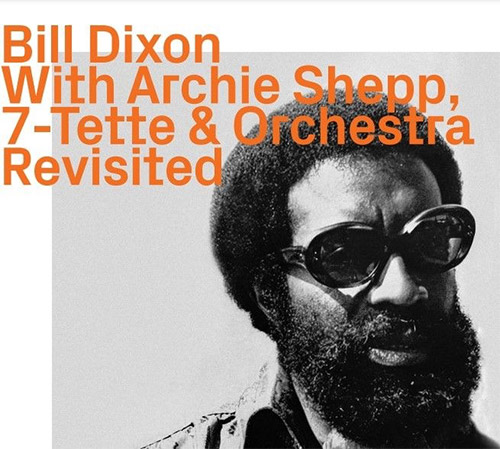




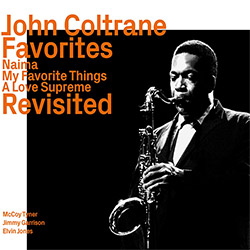

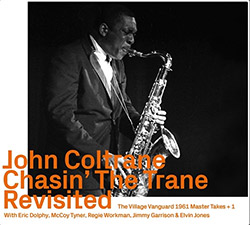
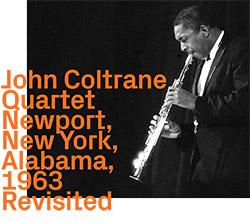
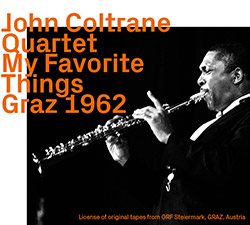
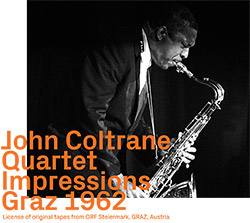
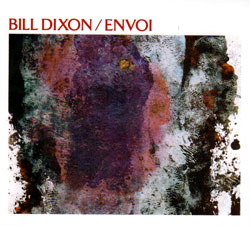


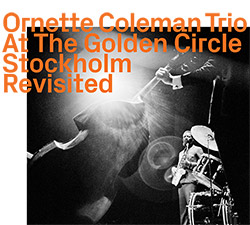


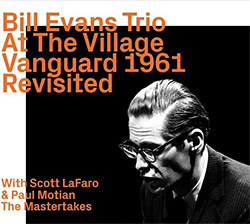

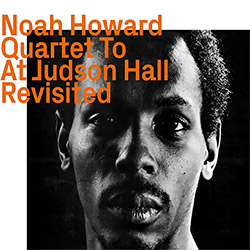
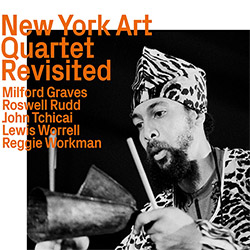
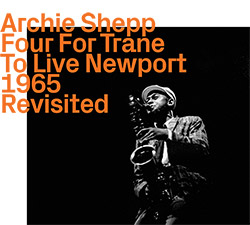

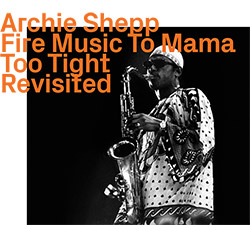













![Deupree, Jerome / Sylvie Courvoisier / Lester St. Louis / Joe Morris: Canyon [2 CDs]](https://www.teuthida.com/productImages/misc4/36404.jpg)


![Eternities: Rides Again [CASSETTE]](https://www.teuthida.com/productImages/misc4/36247.jpg)

![Lopez, Francisco: Untitled (2021-2022) [2 CDs]](https://www.teuthida.com/productImages/misc4/36438.jpg)




![Eventless Plot | Haarvol: The Subliminal Paths [CASSETTE + DOWNLOAD]](https://www.teuthida.com/productImages/misc4/36232.jpg)












![Eventless Plot | Francesco Covarino: Methexis [CASSETTE + DOWNLOAD]](https://www.teuthida.com/productImages/misc4/36231.jpg)



![Das B (Mazen Kerbaj / Mike Majkowski / Magda Mayas / Tony Buck): Love [VINYL]](https://www.teuthida.com/productImages/misc4/36329.jpg)



![Hemphill Stringtet, The: Plays the Music of Julius Hemphill [VINYL]](https://www.teuthida.com/productImages/misc4/36409.jpg)



![Halvorson, Mary Septet: Illusionary Sea [2 LPS]](https://www.teuthida.com/productImages/misc4/17952.jpg)






![Money : Money 2 [2 CDs]](https://www.teuthida.com/productImages/misc4/35894.jpg)




![Klinga, Erik: Elusive Shimmer [VINYL]](https://www.teuthida.com/productImages/misc4/36258.jpg)
![CHANGES TO blind (Phil Zampino): Volume 9 - I Wave on a Fine Vile Mist [CD + DOWNLOAD]](https://www.teuthida.com/productImages/misc4/36061.jpg)

![Wallmart / Rubbish: Asset Protection [split CD]](https://www.teuthida.com/productImages/misc4/35900.jpg)


![+Dog+: The Family Music Book Vol. 5 [2 CDs]](https://www.teuthida.com/productImages/misc4/35897.jpg)
![Kuvveti, Deli : Kuslar Soyledi [CASSETTE w/ DOWNLOAD]](https://www.teuthida.com/productImages/misc4/36107.jpg)

![Nakayama, Tetsuya: Edo Wan [CASSETTE w/ DOWNLOAD]](https://www.teuthida.com/productImages/misc4/36105.jpg)




![Yiyuan, Liang / Li Daiguo: Sonic Talismans [VINYL]](https://www.teuthida.com/productImages/misc4/35957.jpg)
![Brown, Dan / Dan Reynolds: Live At The Grange Hall [unauthorized][CASSETTE]](https://www.teuthida.com/productImages/misc4/36245.jpg)








![Palestine, Charlemagne / Seppe Gebruers: Beyondddddd The Notessssss [VINYL]](https://www.teuthida.com/productImages/misc4/36206.jpg)
![Palestine, Charlemagne / Seppe Gebruers: Beyondddddd The Notessssss [NEON GREEN VINYL]](https://www.teuthida.com/productImages/misc4/36207.jpg)

![Laubrock, Ingrid: Purposing The Air [2 CDs]](https://www.teuthida.com/productImages/misc4/35639.jpg)

![Yoko, Ono / The Great Learning Orchestra: Selected Recordings From Grapefruit [2 CDs]](https://www.teuthida.com/productImages/misc4/35841.jpg)









![Zorn, John / JACK Quartet: The Complete String Quartets [2 CDs]](https://www.teuthida.com/productImages/misc4/35609.jpg)

![Lonsdale, Eden: Dawnings [2 CDs]](https://www.teuthida.com/productImages/misc4/35480.jpg)



![Sorry For Laughing (G. Whitlow / M. Bates / Dave-Id / E. Ka-Spel): Rain Flowers [2 CDS]](https://www.teuthida.com/productImages/misc4/35985.jpg)

![Rolando, Tommaso / Andy Moor : Biscotti [CASSETTE w/ DOWNLOADS]](https://www.teuthida.com/productImages/misc4/36106.jpg)


![Electric Bird Noise / Derek Roddy: 8-10-22 [CD EP]](https://www.teuthida.com/productImages/misc4/35970.jpg)








![Elephant9 : Mythical River [VINYL]](https://www.teuthida.com/productImages/misc4/34624.jpg)



![Elephant9 with Terje Rypdal: Catching Fire [VINYL 2 LPs]](https://www.teuthida.com/productImages/misc4/35355.jpg)
![Deerlady (Obomsawin, Mali / Magdalena Abrego): Greatest Hits [VINYL]](https://www.teuthida.com/productImages/misc4/34876.jpg)







![Surplus 1980: Illusion of Consistency [CD]](https://www.teuthida.com/productImages/misc4/35069.jpg)
![Staiano, Moe: Away Towards the Light [VINYL + DOWNLOAD]](https://www.teuthida.com/productImages/misc4/35037.jpg)
![Coley, Byron: Dating Tips for Touring Bands [VINYL]](https://www.teuthida.com/productImages/misc4/17906.jpg)

![Lost Kisses: My Life is Sad & Funny [DVD]](https://www.teuthida.com/productImages/misc4/lostKissesDVD.jpg)